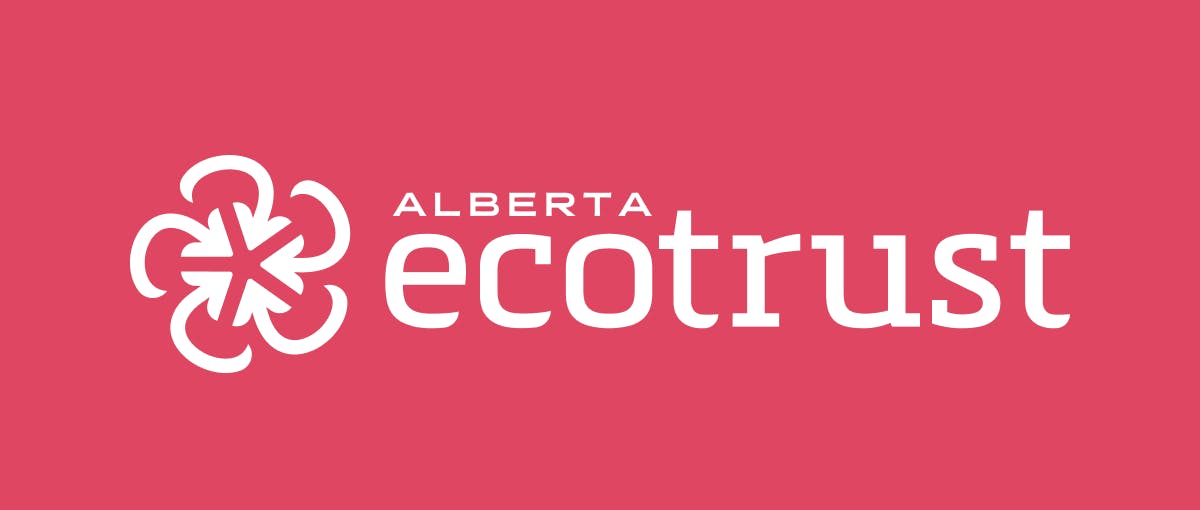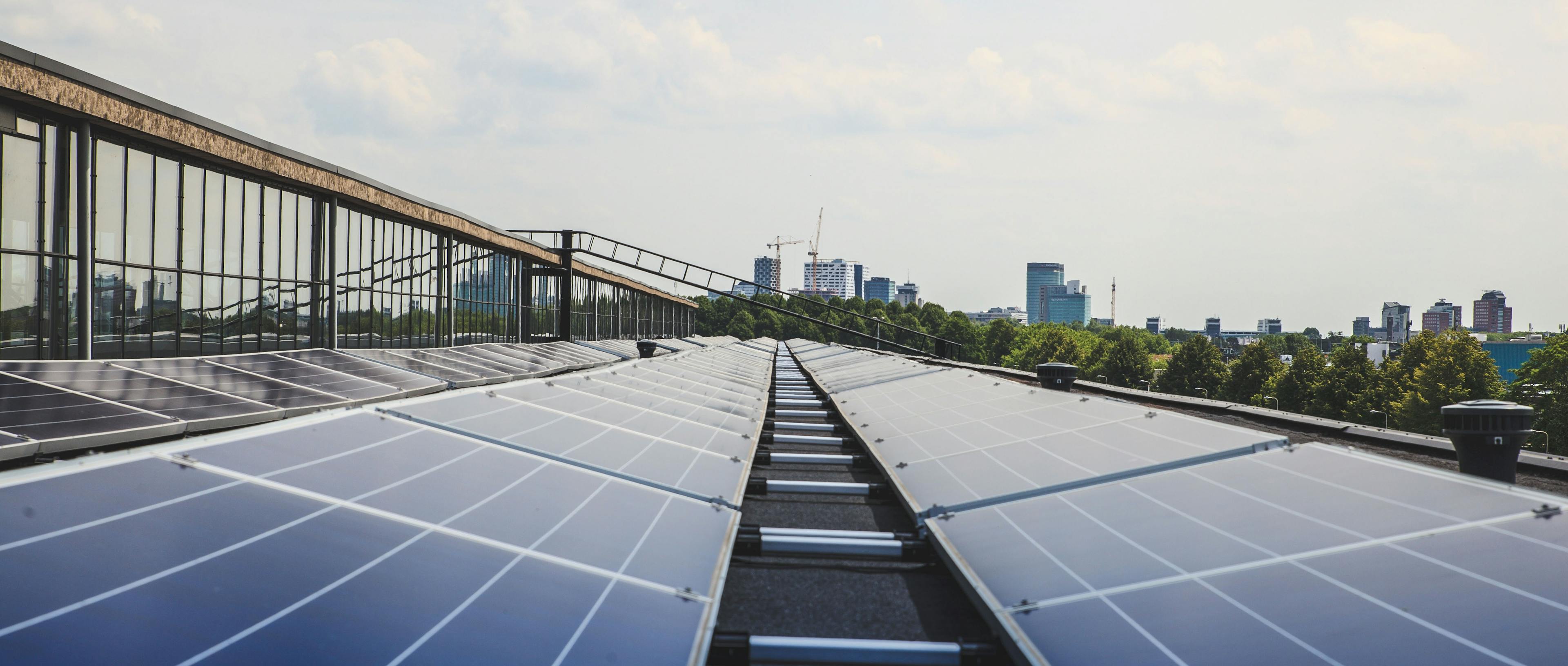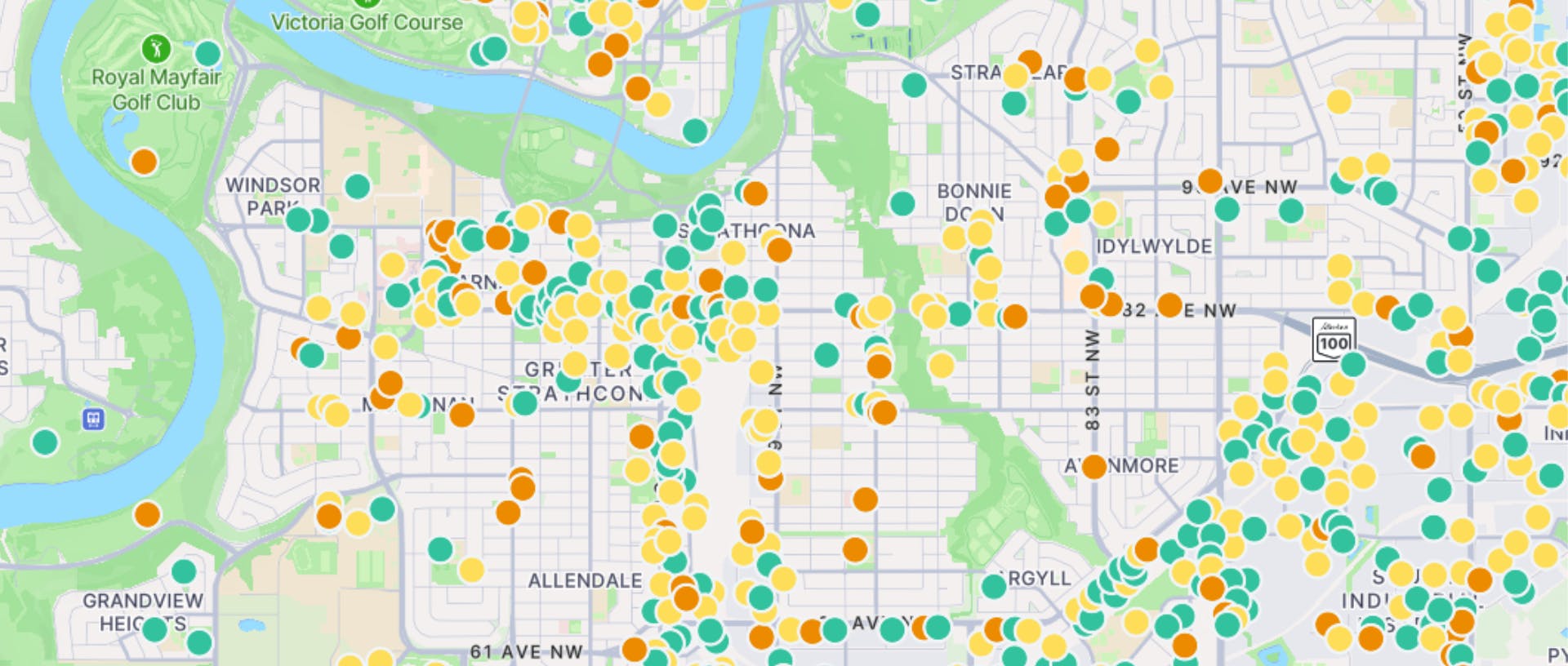Ten organizations in Edmonton and Calgary receive $925K in funding for innovative climate projects

7 minutes
Announcement
Sep 12, 2024
Reading Time
Category
Date
Alberta Ecotrust Foundation is excited to announce our 2024 Climate Innovation Grant Program recipients. Ten organizations in Calgary and Edmonton were awarded a combined total of $925K. These funds will support innovative projects to tackle the climate emergencies declared by both cities and align with the policy directions of their climate plans.
“The cities of Calgary and Edmonton are making progress in their efforts to tackle climate change, alongside many organizations implementing local climate solutions,” shares Lori Rissling Wynn, Director of Grants and Initiatives at Alberta Ecotrust, “We're delighted to support this year’s grant recipients who are pioneering transformative changes in decarbonizing our systems, while also addressing environmental justice and climate resilience, creating a sustainable future for all.”
The 2024 grantee projects explore solutions like scaling the use of electric school buses, advancing low-carbon housing designs, developing vacancy-aware efficient electrical switches for homes, discovering barriers in cycle logistics, enhancing youth cycling programs and expanding electric vehicle charging infrastructure. Each aims to drive sustainability and innovation across Alberta’s communities and industries.
"The Canadian Urban Institute is thrilled to announce our latest initiative in partnership with mddl, to assess the carbon impact of various housing forms throughout their entire lifecycle, which will support the expansion of middle housing options in Calgary and inform policy-making at the intersection of housing, land use and climate resilience. This work is made possible by the generous support of the Climate Innovation Grant, and we hope to make meaningful contributions to Calgary's goal of reaching net-zero emissions by 2050." - Leandro Gabriel Santos, Senior Planner, Canadian Urban Institute.
Since the grant program opened in 2021, the funded projects have the potential to reduce or avoid over 1,719,000 tonnes of CO2e emissions over the next 20 years. Once these projects have been scaled up, this will be the equivalent of taking nearly 26,750 cars off the road annually.
This grant program is funded by the Climate Innovation Fund, which aims to accelerate urban climate solutions in Calgary and Edmonton. Alberta Ecotrust Foundation is grateful for additional funding from the Edmonton Community Foundation and the City of Calgary, whose contributions this year have increased the granting capacity in both cities.
The application period for the next round of the Climate Innovation Grant Program will open in early 2025.
GRANT RECIPIENTS:
Calgary and Edmonton
University of Alberta: This project seeks to reduce the expenses associated with home construction while simultaneously enhancing long-term energy efficiency by developing and utilizing vacancy-aware batteryless wireless electrical switches. These battery-free wireless switches eliminate the need for extensive house wiring, enabling remote control of lights and appliances without physical connections. This innovation has the potential to reduce wiring material and labour costs by up to fifty per cent. Moreover, integrating vacancy sensors facilitates the directed allocation of energy to occupied areas within residential buildings, thereby enhancing energy efficiency throughout the buildings' lifespan.
Calgary
Pembina Institute for Appropriate Development: The Institute seeks to uncover the potential for goods movement by bike within the City of Calgary. The proposed project will identify Calgary-specific barriers and develop an action plan to accelerate the uptake of cycle logistics. This aligns with a scale pathway rooted in policy development and advocacy in collaboration with key City of Calgary departments to enable accelerated and sustained change.
The Pollution Probe Foundation: Diesel school buses significantly contribute to greenhouse gas emissions and air pollution, adversely affecting the climate and community health. In partnership with Calgary's Southland Transportation, this project targets the efficient scaling of electric school buses at a depot, addressing a critical knowledge gap in charging infrastructure and management. A practical, cost-effective charging infrastructure electrification blueprint will be developed using real-world data from over 50 buses, including various scenarios and their associated capital and operational costs. This initiative promises not only to showcase the technological and economic feasibility of electric bus fleet expansion but also to expedite an equitable industry-wide adoption.
Passive House Alberta Foundation: The Foundation will develop a package of generic high-performance, low-carbon, missing middle and affordable housing designs appropriate for the Alberta Climate. They will partner with the Cities of Calgary and Edmonton, not-for-profit housing organizations, design professionals, energy advisors, multifamily builders and low-carbon materials suppliers. Through collaboration and integrated design processes, the goal will be to deliver innovative low-carbon plans that can be replicated throughout Alberta. In addition, a reference catalogue of low-carbon materials and assemblies that are readily available in Alberta will be produced.
Canadian Urban Institute: Given the recent city-wide upzoning to permit middle housing across the City of Calgary, the Canadian Urban Institute (CUI) and mddl are going a step further to measure its climate benefits and equip industry and policymakers with the knowledge to accelerate middle housing production in the city. We will quantify the carbon emissions attributable to the life cycles of small-scale, multi-unit housing forms in Calgary. Based on this new climate benchmark, we will model future scenarios in the Established Area to determine the impacts gentle density will have on the City's ability to reach net-zero emissions by 2050. We will also assess the City's land use policies and climate programs to better enable middle housing development.
Youth en Route (YER): YER programming reduces economic, logistic, cultural, or adaptive challenges that prevent students from cycling as a form of transportation. YER will encourage all-season cycling by providing education, skill development and winter cycling equipment. Permanent bike storage facilities will be added at public schools using old maze gates donated by the City of Calgary. YER will expand the reach of cycling education and adaptive bike programs to 20 schools to empower youth to choose sustainable modes of travel to school now, and build lifelong habits.
Edmonton
Northern Alberta Institute of Technology (NAIT): This project will develop sustainable air source heat pump (ASHP) training for Edmonton home builders. The training program is intended for homebuilders who wish to increase their knowledge of carbon products and technology. Upon successful completion of the training, participants will understand how to install, maintain and optimize ASHPs. The program aims to increase the number of people in Edmonton who can install ASHPs and recommend lower emissions alternatives in Albertan homes.
Retrofit Canada Society: In partnership with NAIT, ReNü Engineering Inc., and MACK Construction, Retrofit Canada will manage the implementation of a cold climate heat pump research station, on the NAIT campus. Land-permitting, the project will offer side-by-side performance comparison between cold climate air source heat pump, traditional vertically drilled ground source heat pump field, and a first in Alberta, the pilot of below-building ground source retrofit wells using utility-style directionally drilling. The project will offer proof of concept for low-impact geothermal retrofits, under existing buildings, and create a long-term research + testing facility for NAIT Alternative Energy Program students.
Community Energy Association (CEA): CEA will be working on a collaboration to scope and co-design a high-impact community-driven network of electric vehicle (EV) chargers in Edmonton and the surrounding region. The project aims to galvanize EV adoption in Edmonton by providing networked infrastructure to encourage market adoption of individual and fleet vehicle electrification. Coordinating the network throughout Edmonton and beyond will have a twofold impact: 1. Enabling drivers in Edmonton to adopt electric vehicles thanks to reliable infrastructure; and, 2. Significantly reducing vehicle greenhouse gas emissions. This initiative supports the City of Edmonton’s ambitious climate change targets for a sustainable future.
The Board of Governors of Grant MacEwan University: The EcoCharge MacEwan project aims to install fast-charging electric vehicle stations powered by solar energy and battery storage on a bustling university campus in downtown Edmonton. By addressing the increasing demand for electric vehicles and reducing emissions, the project directly tackles the transition to zero-emission transportation. Key objectives include deploying state-of-the-art chargers, integrating advanced battery storage and maximizing the use of solar power. Benefits include enhanced urban mobility, reduced carbon footprint and lower electricity bills through peak load shaving. The project also emphasizes community engagement and scalability, seeking financial support for implementation and aiming for completion within a two-year timeline.
For media inquiries
Tori Grant, Communications Specialist, Alberta Ecotrust Foundation
403.209.2245
Related posts
Explore our most recent posts.


